

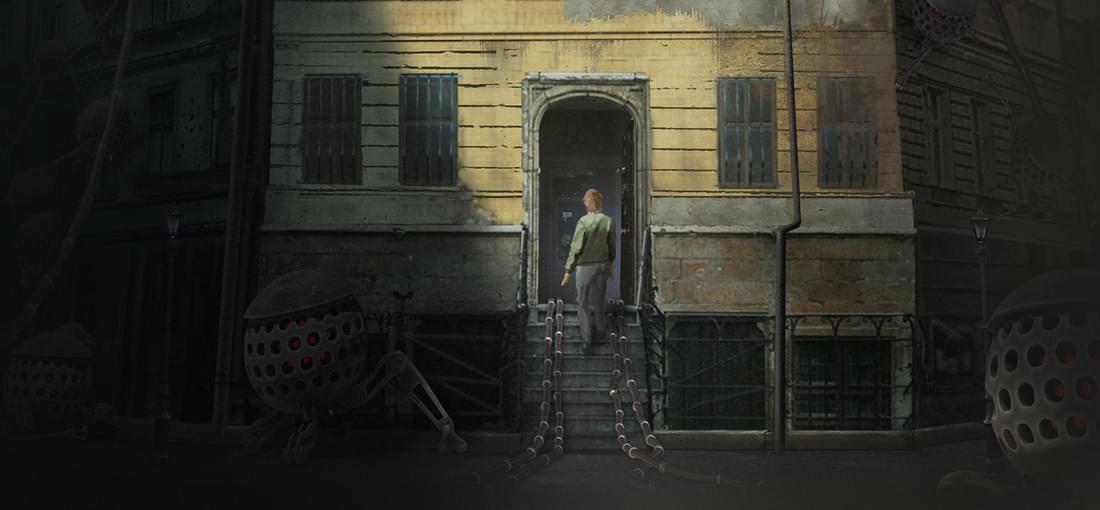
Industria is a first-person shooter where you play as a woman named Nora Sohlheim, who was transported to a post-apocalyptic, alternate Germany overrun by killer robots while looking for Walter Rebel, her lover. It's very obvious that this game is inspired by Half-Life 2, especially the City 17 levels which have the same aesthetic, being bleak European towns infected with alien-like machinery. No gravity gun or physics-based puzzles, however. Gameplay is pretty basic, for most of the game you shoot through, but there are parts where you must find items to progress. The combat is pretty fun, you have different weapons and quite a variation of enemies. Maybe it's by design, but I feel like our carrying capacity is a bit too little, especially since the enemies took quite a bit of our weaker weapons' ammo to take down. The shotgun is great and satisfying to one-shot every enemy though. The weak point of this game is the story. Yes it's short, but the ending raises more questions than answers. It's obvious that there is something bigger and stranger going on, like the transition Library levels which was never fully explained. I'd also like a boss battle, but there are none. But there is a sequel of this game coming soon, lets hope that it clears up whatever questions we have left. In conclusion, I think Industria is still worth a try, especially if you have an itch for HL2's City 17 or wanting to fight killer robots. But if you expect a great, satisfying story, sadly I must say that you'll most likely be disappointed.
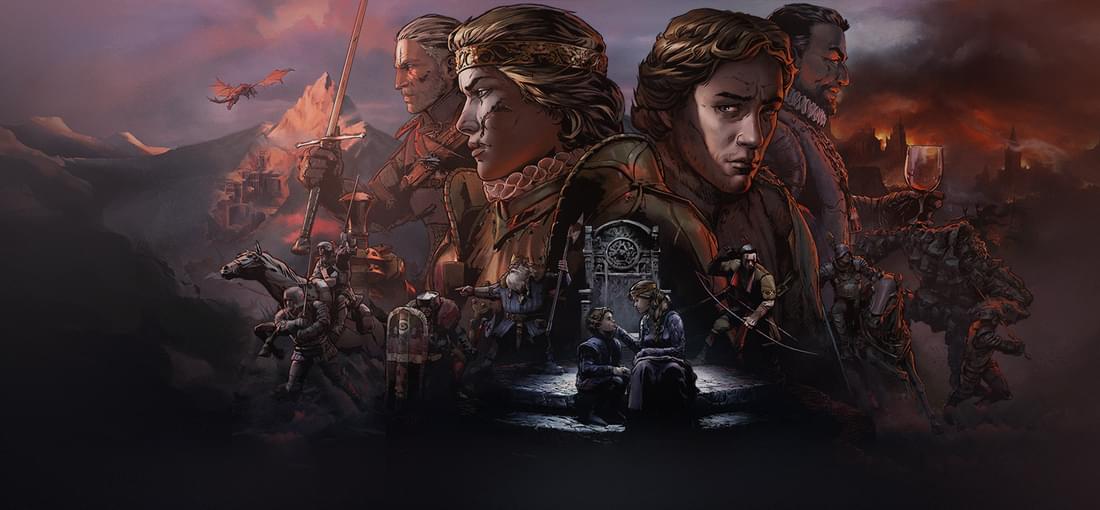
Thronebreaker: The Witcher Tales is a card game set in the Witcher universe. You play as Meve, a deposed queen trying to regain her throne with the help of her army, taking place during the timeline of the books, even before Witcher 1. However the most important difference is the gameplay. It's a Gwent-focused game, yet still contains some RPG elements, like how you have a map to roam, sidequests to do, and your choices matter. In this game, Gwent's rules and mechanics are a bit different and more complicated than the one in Witcher 3. It serves as a "stand-in" for armies and events, like for example when you're fighting a Nilfgaardian army, they will only use Nilfgaard cards, no random monster or elf cards in their deck. When you recruit a character, their card will be added to your deck, and if they leave, you can't use their card anymore. If you dislike Gwent, good news, the card games can be skipped on easier difficulties. So you technically can just play Thronebreaker like a point-and-click game, but you will be missing out on half the game. A major problem with this game is the lack of multiple save slots. You cannot manually make another save or quicksave, as each game only has 1 save, a single misclick can bring disastrous results. Personally, I think it would be a lot better if you can make multiple saves, as it's also easier to view alternate outcomes. The treasure chest collectibles also sadly doesn't unlock content here other than an achievement. They unlock rewards for the multiplayer Gwent game. Thronebreaker is a surprisingly great game set in the Witcher universe, even if it looks and plays different from the main games. The quality is on-par, and the soundtrack is amazing as well. If you're a Witcher fan, no matter if you're a Gwent addict or simply just want the story, you won't regret playing this game.
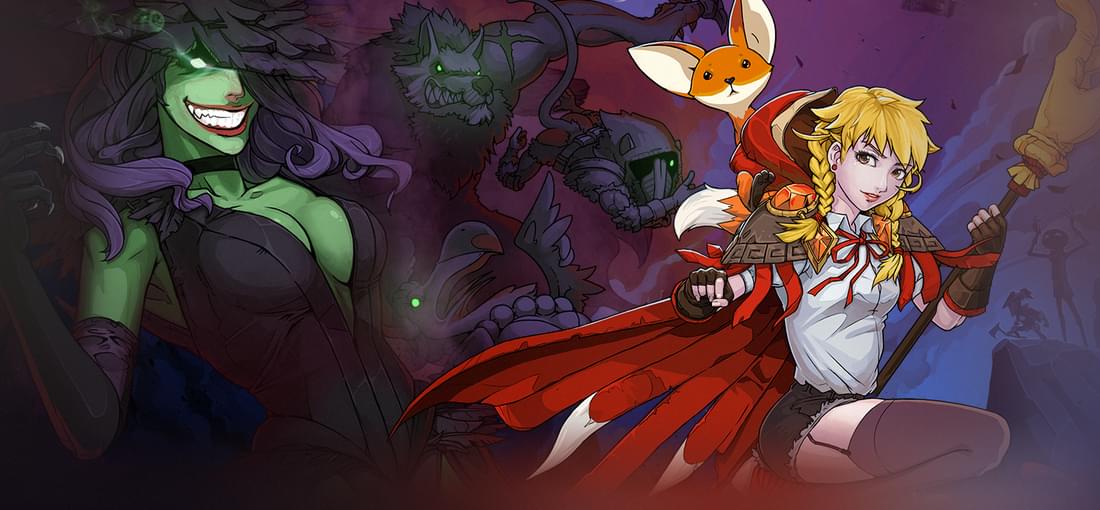
Scarlet Hood and the Wicked Wood is a 2D adventure game where you play as Scarlet, a singer who is mysteriously transported to a fantasy world which combines elements of several classic fictions such as Red Riding Hood, Wizard of Oz, and Alice in Wonderland, among others. The artstyle is what draws me in, it's so colorful and beautiful. The gameplay consists of finding items and clues to progress, and solving puzzle minigames. For each area you can progress it in 3 ways, by either helping a lost hero, upgrading your Womp Stick, or finding objects to subvert the enemy. The game seems to recommend helping the heroes, which is what I prefer to do too. There are multiple endings which depend on which paths you take, and in my opinion the best one is what you get by helping them all. My problem with this game is its difficulty in puzzles. Many of them aren't too clear and I have to resort to walkthroughs. But the worst of all is that catacomb puzzle in Barrow Grove where you navigate identical rooms and some have locked gates. It definitely overstays its welcome and I spend almost an hour in total getting lost there. There's also a giant wolf that randomly appears and chases you like a Resident Evil stalker enemy, but I actually like that part. Though sometimes its not really clear when and how to make it stop chasing. When I got into this game, I was expecting an easy chill adventure, due to the visuals and music. And while many parts of the game fits my expectation, I didn't expect the brain-twisting puzzles. Still, if you're looking for a fun adventure with pretty visuals and a bit of comedy, you'll definitely find it here.
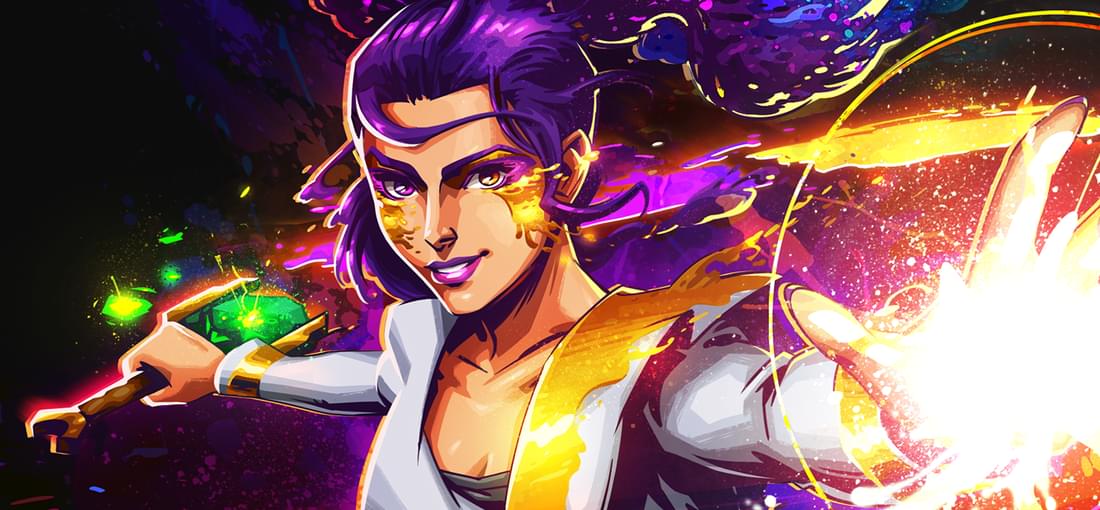
Arto is a hack-and-slash game with RPG elements, where you play as a girl named Liv, a Chosen One with the power to restore color to a chaotic, desaturated world. To do so, you'll have to recover artifacts called Oeuvres from several worlds, guarded by bosses as you would expect. The worlds are the strong point of this game, each one looks beautiful and different. Like there's one in the style of Andy Warhol's pop art, another inspired by Japanese brush paintings, and a vaporwave-inspired one. By "lacking in execution", I mean it mainly because of how unoptimized it is. Some, usually smaller, areas play very smoothly, but the more open ones are a lag fest. Especially dangerous when the area happens to be one with many enemies. I had difficulty with the spider boss partly because of its attacks, but mostly because of the lag. Also, while it never crashed, sometimes I got stuck in loading screens which, even normally can take quite a while to load. Combat-wise it can be kinda hard, especially early game, so I recommend prioritizing in unlocking max health and healing skills first. Then it gets a lot easier. But one thing that annoys me is how the enemies constantly respawn. I like the combat in this game even though it can be a bit clunky, but fighting enemies over and over again gets tiring. Better to just run away from them if you can. Overall, I think Arto's a pretty fun game with unique and beautiful artstyles, but sadly poorly optimized. If you can handle the lag and kinda difficult combat, it's a unique, enjoyable indie game. Honestly the poor optimization's not too bad, still playable, just not really smooth.
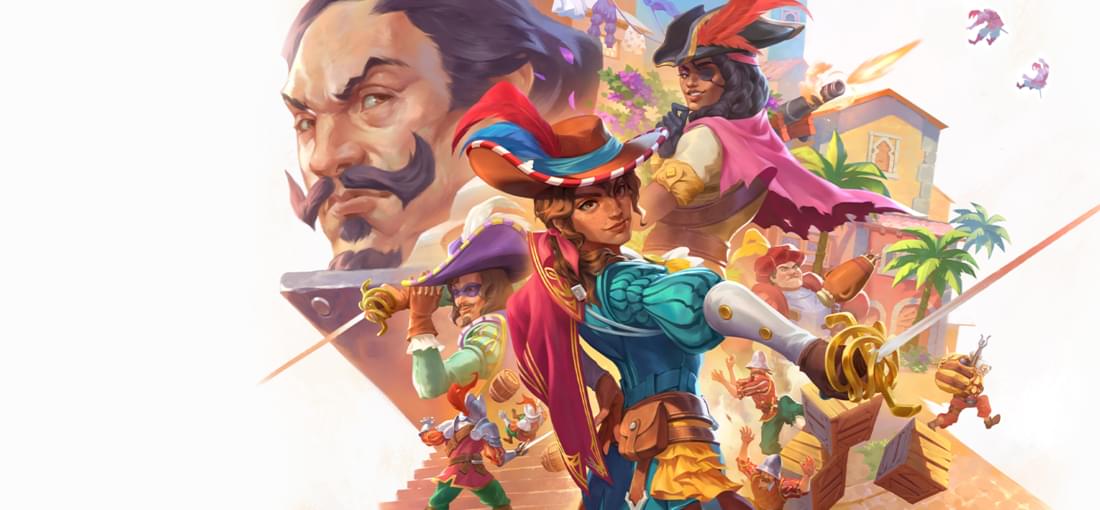
En Garde! is a swordfighting game where you play as swashbuckler Adalia de Volador as she fights the evil Count-Duke and his army of guards. It's a light-hearted comedy game, with many funny exchanges between Adalia and other characters, and defeated enemies will sometimes say funny lines as well. The graphics are beautiful, it's very colorful, set in a coastal Spanish town. The gameplay is hack-and-slash, but also reflex-based and uses the environment. Like some enemies need to be dodged and/or parried before you can deal damage to them. You can throw items or kick them to break their guard faster. Getting swarmed by enemies can be dangerous, and try to 1v1 them. Even on easy mode it's still kinda hard, but don't worry as you can activate assist mode, like invincibility, auto-parry, and making enemies don't regain their guard. Length-wise, this game is not very long, but it's not really a bad thing since the story feels coherent and too much fights can be tiring for your fingers. There's an Arena Mode though in case you want to fight more waves of enemies. If you like reflex combat games such as Batman Arkham or Ryse: Son of Rome, En Garde! will satisfy you. What this game really needs is a photo mode, imagine the cool mid-combat screenshots we can get in a beautiful environment!

Hitman: Absolution uses a considerably different formula compared to other Hitman games. It is extremely story-driven, unlike other Hitman games where each mission are loosely-connected contracts on separate targets. The levels are linear, and the only targets are people connected to the abduction of a girl 47 must protect. While many people don't really seem to like this, it does in a way makes this game different from other Hitman titles. The gameplay remains the same, using stealth, disguises, and strategy. While most fans seem to dislike a linear story-driven Hitman game, I think it's great. The story is pretty thrilling, and the game hires some big-name actors for the characters. If you're going to play this game, play on NORMAL difficulty at least. The Easy difficulty doesn't track challenges. The bad things about the gameplay are the save system and disguises. Instead of manual saving, Absolution uses checkpoints and stages in every level. Checkpoints are only usable once per session, and if you KO or killed a non-target enemy then reload a checkpoint, they respawn. Luckily, each stage is usually pretty short, but still annoying how restarting means redoing lots of things again. NPCs with the same disguise as you can detect you, and you have to hide or trick them. Another thing is that the Contracts mode, in which you can create and share contracts, are removed from this version since the servers were shut down. The story mode is still playable from start to finish, so honestly it's not really an issue unless you want this game simply because you like creating missions.
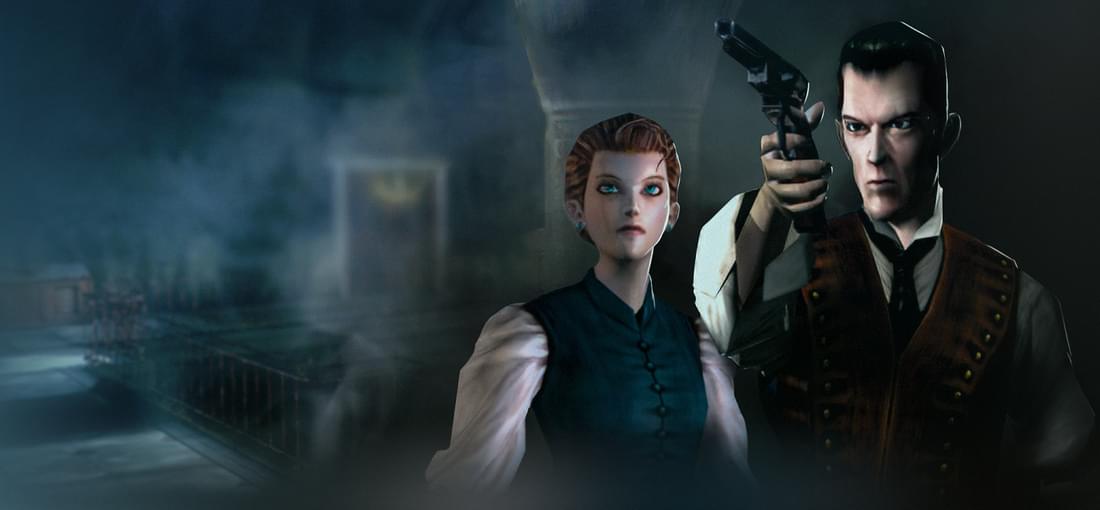
Curse: The Eye of Isis is a survival horror game, played from a fixed camera perspective. Set in the 19th century, you play as archaeologists Darien Dane and Victoria Sutton, investigating a statue discovered by their parents that brought upon a curse that turns people to the undead and brings mummies to life. Now, they must return the statue to the tomb where it was taken from. You play as either one of them at a time, sometimes switching as the story progresses. You can only save whenever your friend Abdul appears, and can switch out inventory items between the 3 characters. If you played the Resident Evil series you'd find many similarities. The fixed camera, undead enemies, being able to save only at certain points, inventory management, and puzzles. But of course it's not as well-made as the RE games. For example, the fixed camera does more harm than good sometimes, it moves around a bit and can make navigation confusing especially in the Ship level, kinda poorly designed and many hallways look too similar. There's also little enemy variation, mostly just reskins, but the boss fights are pretty cool. The clunkiest part of the game is the controls. You cannot remap the movement keys, which on keyboard are the arrow keys, to WASD. Luckily, other keys can be remapped, so I use the WASD keys to aim instead. With proper keyboard + controls it will make this game a lot more smooth, but honestly once you get used to the controls they're not too bad. You'll be a bit slow yes, but then again so are the enemies. The story is pretty cheesy, too, very plain and didn't fully use its potential. But if you like retro, Resident Evil-style horrors with fixed cameras and inventory management, Curse: The Eye of Isis is a game you should probably check out. It's pretty fun to play, just don't set your expectations too high.
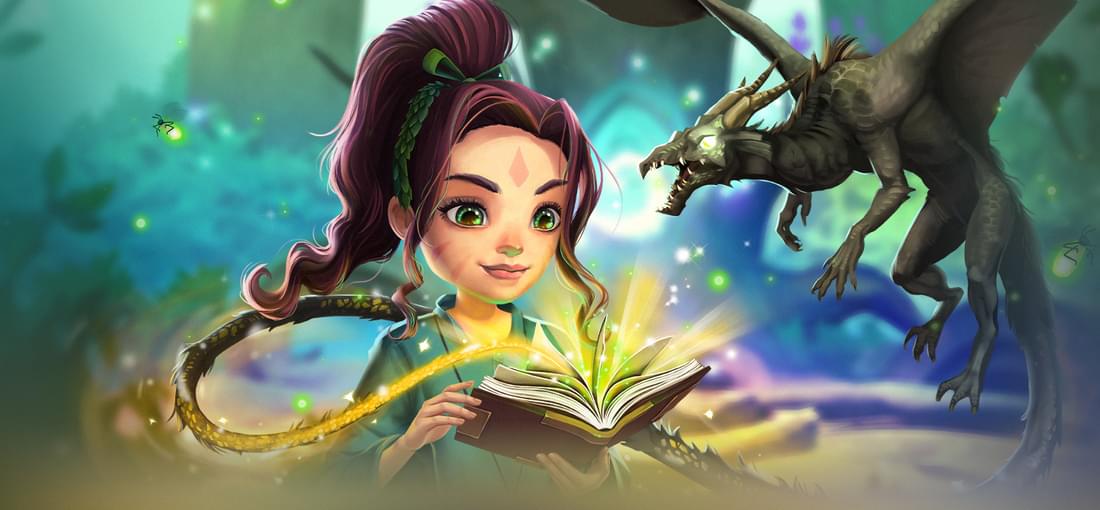
Lost Words: Beyond the Page is a puzzle-platformer game where you play as a girl named Izzy, who was writing a fantasy story and trying to cope with her beloved grandma's illness. You can move her character both in her real-world journal, and her fantasy world of Estoria. The voice acting combined with the music makes me really emotional, and I won't lie, there are times when I can feel tears in my eyes and a cry coming up. Gamplay-wise, neither the puzzles nor the platforming are difficult at all. Puzzles mostly just involves picking the correct word from your Word Magic book, and applying it to the object hindering your progress. The platforming is also easy, mostly just jumps here and there, nothing too tricky such as timing-sensitive jumps which can take multiple tries to get right. There's also some choice elements, like how you can pick a name and color for Izzy's character and her outfit. Some other choices also makes minor changes in the world, fitting as Izzy's writing her story on the go. I say that Lost Words: Beyond the Page is a hidden gem. It's beautifully designed, colorful, easy, relaxing, cute, and emotional, all in one. Only bad thing I can say about this game is its length, which is pretty short (4-5 hours). But it doesn't lessen the emotional impact, which is the strong point of this adventure. If you're into puzzle-platformers you should try this game, especially if you need an easy one. But if you're someone looking for an emotional story in videogames, this is one title you shouldn't miss.

I Have No Mouth, And I Must Scream is an expanded adaptation of the Harlan Ellison short story of the same name. It's about 5 people who are endlessly toyed with for more than a century by AM, an evil AI voiced by the author himself. You must play as all of the 5 characters, and every single one of them has a unique level based on their psychological traumas and regrets. The artstyle for the levels are really great and unique, each of them is very different from one another making them memorable. Like how Benny's is a caveman village with a HR Giger-like aesthetic, and Ted's level being a dark fairytale castle. Your objective is to face your traumas and regrets, emerging as a changed person, which will allow you to get totems and overpower AM in the ending. However, I must say this game isn't that easy. The settings are of course kinda surreal and can be confusing, but other than that you can softlock yourself or accidentally do an action that prevents you from completing the best outcome of the levels, and by extension the ending. To prevent that, you can follow a guide and use multiple save slots. If you're already familiar with the point-and-click genre, it plays similar to the newer ones, so give this great adaptation of a classic sci-fi tale a try!
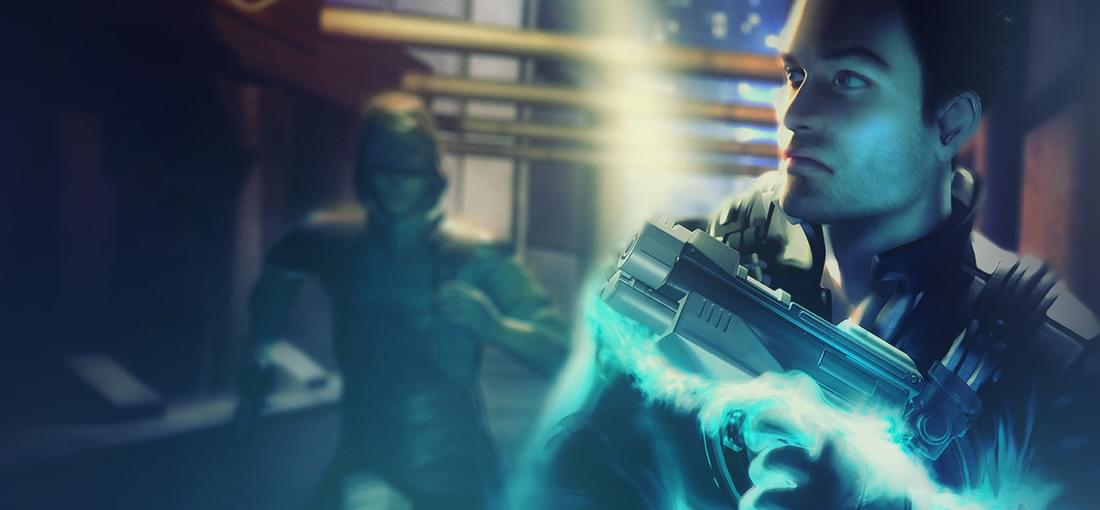
Deus Ex 2: Invisible War is story-wise, the final part of the Deus Ex series. Despite the hate, I still find this game quite okay and enjoyable to play. Non-lethal knockouts are easier than the first game, and they work mid-combat which is a really fun thing. You play as either a male or female Alex D, a Denton clone caught in a crossfire between factions who want to control the world. You can help whoever you want, even all, it won't lock you out until near the end. Even the most hardcore Deus Ex fans would agree this game is a step-down. It's made for console, which means many limitations. The maps are very small and claustrophobic, unlike the big open areas of the first game, which feels more like alleys and hallways rather than a proper city or building. There's no code-entering function like the first game, instead you have to find the code somewhere or use a multitool for keypads. Story also feels kinda shallow, the levels felt plain, lacking variation and color. It's a shame, because if the world here was properly developed, it could rival the other DX games. The biggest problem of this game, though, is not the game itself, but rather the optimization. You can install the Visible Upgrade mod to have proper widescreen, but the game still lags and crashes when loading from time to time, and reinstalling the mod seems to be the only fix if your game always loads to a black screen. Even despite its flaws, I think Deus Ex 2: Invisible War is still worth a try if you love the franchise, or cyberpunk in general.